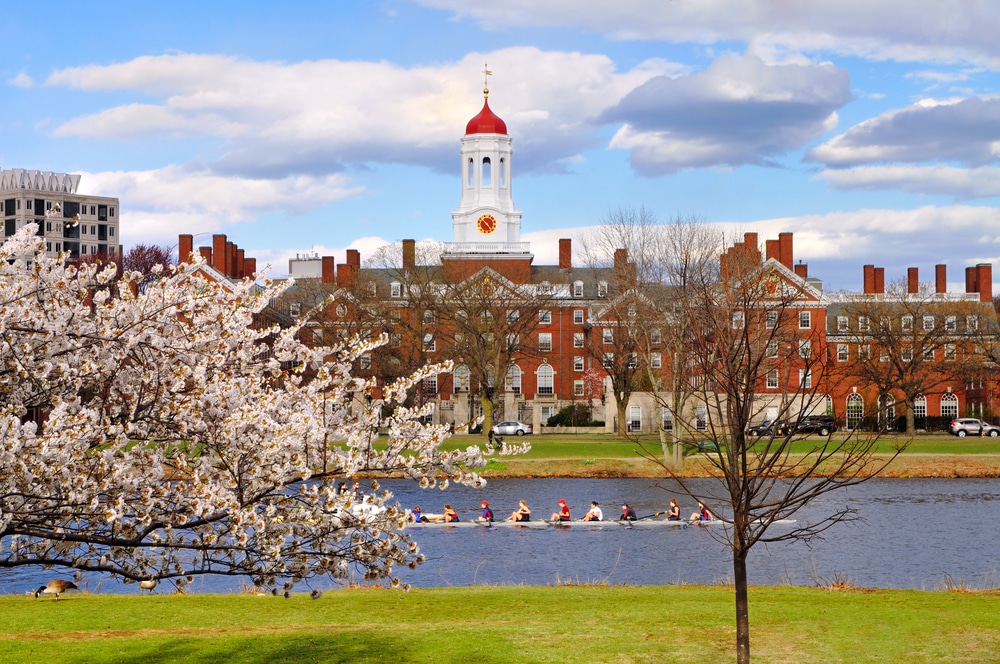Harvard Early Decision Acceptance Rate
Delving into the early decision acceptance rates of prestigious institutions, such as Harvard University, often uncovers fascinating insights into the admissions process and strategies. This discussion revolves around understanding early decision, how it applies to Harvard, and how this impacts the acceptance rate and the university’s diverse campus.
Understanding the Harvard Early Decision Acceptance Rate: A Brief Overview
Before we proceed to the specifics of early decisions at Harvard, let’s first familiarize ourselves with the general concept of early decisions. Early decision is an admissions process used by many universities across the United States that enables students to apply earlier than the Regular Decision deadline and receive their decision sooner.
Early decision provides an opportunity for students to demonstrate their commitment and dedication to a particular institution. It allows them to express their strong interest in attending a specific school and potentially increase their chances of acceptance. However, it is essential to understand the implications and considerations associated with this binding agreement.
What is an Early Decision?
Beyond the essentials of being an expedited process, Early Decision is a binding agreement. When a student applies for Early Decision, they commit to attending that school if they are accepted. This commitment implies that if they are accepted, they must withdraw all applications from other institutions. It’s an excellent option for students who have a clear first-choice school.
By applying through Early Decision, students are essentially making a promise to the university that if admitted, they will enroll. This level of commitment showcases the student’s genuine interest and dedication to the institution. It also allows the university to better predict their incoming class size and shape their admissions decisions accordingly.
The Pros and Cons of Early Decision
Undeniably, Early Decision comes with an array of benefits and drawbacks. On the one hand, it offers students the comfort of knowing where they’ll be studying earlier. It also tends to have higher acceptance rates than Regular Decision, as demonstrated by the statistics on Early Decision acceptances. This higher acceptance rate can be attributed to the fact that students who apply through Early Decision have typically done extensive research and are genuinely passionate about the school.
Moreover, Early Decision can provide an advantage in the highly competitive college admissions process. By demonstrating a clear first-choice school, students may stand out among the applicant pool and increase their chances of acceptance. Additionally, being admitted through Early Decision can alleviate the stress of waiting for multiple college decisions.
However, the binding characteristic of Early Decision can be a disadvantage for some. Students who receive insufficient financial aid or those who change their minds after applying will face difficulties due to the obligatory nature of the process. It is crucial for students and their families to carefully consider the financial implications and ensure that they can afford the tuition and fees associated with the chosen institution.
Furthermore, applying through Early Decision restricts students from exploring other options and comparing financial aid packages from different schools. It is essential for students to thoroughly research and assess their options before committing to a binding agreement.
In conclusion, Early Decision can be a strategic and beneficial choice for students who have a clear first-choice school and are confident in their ability to afford the associated costs. However, it is crucial to weigh the advantages and disadvantages carefully and make an informed decision that aligns with both academic and financial goals.
The Harvard Early Decision Acceptance Rate Process
When it comes to college admissions, the Early Decision process is an important consideration for many students. It offers the opportunity to apply to a college or university early in the admissions cycle, typically in November, and receive a decision sooner than regular decision applicants. Early Decision can be a great option for students who have a clear top choice school and are ready to commit to attending if accepted.
Having understood what Early Decision encompasses in broad strokes, it’s time we narrow our examination to the context of Harvard University. As one of the most prestigious institutions in the world, Harvard’s Early Decision program, known as Restrictive Early Action, is highly sought after by ambitious students.
The Timeline for the Harvard Early Decision Acceptance Rate
Harvard’s Early Decision program has a deadline in early November, with decisions generally announced in mid-December. This timeline allows students to receive an admissions decision before the regular decision deadlines of other schools. It can be a nerve-wracking time for applicants, as they eagerly await the outcome of their application.
Although it is called “restrictive,” Harvard’s Early Decision program is not binding in the same way as a typical Early Decision process. Students who are accepted through Early Decision are not required to attend Harvard and are still able to apply to other schools’ regular decision pools. However, they are not allowed to apply to other schools early action or early decision programs, which means they must carefully consider their options before committing to Harvard.
Requirements for Early Decision Applicants
Applying to Harvard through the Early Decision program requires meeting the same requirements as those for Regular Decision. These requirements include submitting the Common Application, providing a high school transcript, submitting standardized test scores, obtaining recommendations, and potentially participating in an interview.
Harvard expects Early Decision applicants to showcase their academic prowess, extracurricular engagement, and personal qualities effectively. This means that students must not only have impressive grades and test scores but also demonstrate their unique talents and contributions outside of the classroom. Admissions officers at Harvard are looking for well-rounded individuals who will make a positive impact on campus and contribute to the university’s vibrant community.
Overall, the Early Decision process at Harvard University offers students a chance to demonstrate their commitment to the institution and potentially secure their spot at one of the most prestigious universities in the world. It is a highly competitive process that requires careful consideration and preparation, but for those who are accepted, it can be a life-changing opportunity.
Analyzing the Harvard Early Decision Acceptance Rate
Numbers often tell an interesting story. When it comes to Harvard’s early decision acceptance rates, it’s a narrative of competition, determination, and, in many instances, success.
Harvard University, one of the most prestigious educational institutions in the world, receives a staggering number of applications each year. As a result, the admissions process is highly selective, and the early decision acceptance rate is a reflection of this exclusivity.
Factors Influencing the Harvard Early Decision Acceptance Rate
Several factors influence Harvard’s restrictive early action acceptance rate. Among these are the strength of the application, the early nature of the process, and the competitiveness of the applicant pool that year.
When evaluating applications, Harvard’s admissions officers carefully consider various aspects, such as academic achievements, extracurricular involvement, leadership potential, and personal qualities. The strength of an applicant’s academic record, including GPA and standardized test scores, plays a significant role in the decision-making process. However, it is important to note that Harvard takes a holistic approach to admissions, considering the applicant as a whole rather than solely relying on numerical metrics.
The early nature of the process also impacts the acceptance rate. Early decision applicants demonstrate their commitment to Harvard by applying early and indicating their intention to attend if accepted. This level of dedication and enthusiasm can positively influence the admissions officers’ assessment of an applicant’s fit for the university.
Additionally, the competitiveness of the applicant pool in a given year can affect the acceptance rate. Harvard attracts some of the brightest and most accomplished students from around the world, creating a highly competitive environment. Each year, the applicant pool becomes increasingly impressive, making it even more challenging to secure a spot at the university.
Furthermore, because Harvard’s admissions are need-blind, the applicant’s financial background does not affect the decision. This ensures that the university evaluates applicants solely based on their qualifications and potential, rather than their ability to pay for tuition.
Comparing Early Decision and Regular Decision Rates
There appears to be a trend of higher acceptance rates for students who apply early compared to those who apply regular decisions—implying a strategic benefit for those ready to commit. However, it’s essential to consider the competitive nature of the early applicant pool, which often comprises highly motivated students.
Applying early decisions can be advantageous for students who have a clear first-choice institution and are confident in their desire to attend Harvard. By submitting an early decision application, students demonstrate their commitment and enthusiasm, which can positively impact the admissions officers’ evaluation.
However, it is important to note that the higher acceptance rate for early decision applicants does not guarantee an easier path to admission. The early applicant pool is typically composed of highly motivated and academically accomplished students who have carefully considered their options. These students often possess exceptional qualifications and a genuine passion for Harvard, making the competition within the early pool fierce.
On the other hand, regular decision applicants face a larger applicant pool, as students who are unsure about their first-choice institution often apply during this round. Consequently, the regular decision acceptance rate tends to be lower due to the increased competition.
In conclusion, analyzing Harvard’s early decision acceptance rate reveals a complex and competitive admissions landscape. Factors such as the strength of the application, the early nature of the process, and the competitiveness of the applicant pool all play a role in shaping the acceptance rate. Whether applying early decision or regular decision, prospective Harvard students must demonstrate exceptional qualifications, a genuine passion for learning, and a strong fit with the university’s values and mission.
Strategies for Increasing Your Chances
Now that the process and factors have been demystified, what strategies can hopeful applicants employ to boost their chances of gaining admission through Harvard’s Early Decision scheme?
When it comes to increasing your chances of admission through Harvard’s Early Decision scheme, there are several strategies that can greatly improve your prospects. These strategies not only involve preparing a strong application but also require careful planning and consideration.
Preparing a Strong Application
First and foremost, crafting a comprehensive, honest, and compelling application is the bedrock of a successful early application. It is crucial to present superior academic performance, showcasing not only exceptional grades but also a genuine passion for learning. Admissions officers at Harvard are looking for students who have demonstrated intellectual curiosity and a thirst for knowledge.
Aside from academic achievements, it is important to showcase meaningful engagement in extracurricular activities. Harvard values well-rounded individuals who have made a positive impact in their communities. Whether it’s through leadership roles in student organizations, community service, or participation in sports and the arts, highlighting your involvement and the skills you have developed can greatly enhance your application.
Furthermore, the essay component of your application is an opportunity to tell a personal story that resonates with the admissions officers. It is essential to reflect on your experiences, values, and aspirations, and to convey them in a compelling and authentic manner. Your essay should not only showcase your writing skills but also provide insights into your character and potential contributions to the Harvard community.
Tips for Early Decision Applicants
In addition to the general application advice, Early Decision applicants should take into consideration some specific factors that can further increase their chances of admission.
Firstly, it is crucial for Early Decision applicants to be certain about their school choice, given the binding aspect of this track. By applying early decision, you are committing to attend Harvard if accepted. Admissions officers want to see that you have thoroughly researched the university and have a genuine desire to be a part of the Harvard community.
Secondly, applying early allows for ample time to engage in college preparation processes, such as seeking financial aid if admitted. Early Decision applicants have the advantage of having more time to explore scholarship opportunities, complete financial aid applications, and plan for the financial aspects of attending Harvard.
Lastly, having a well-researched and carefully prepared application is crucial for Early Decision applicants. By thoroughly understanding Harvard’s mission, values, and academic programs, you can tailor your application to align with what the university is looking for in its students. This includes highlighting specific courses, professors, or research opportunities that align with your academic interests and goals.
By following these strategies and tips, you can significantly increase your chances of gaining admission through Harvard’s Early Decision scheme. Remember, the key is to present yourself as a well-rounded, passionate, and intellectually curious individual who will contribute to the vibrant and diverse community at Harvard.
The Impact of Early Decision on Harvard’s Campus Diversity
Early Decision also plays a significant role in shaping Harvard’s campus community, particularly in aspects like socioeconomic and geographic diversity.
Early Decision and Socioeconomic Diversity
Even though Harvard’s admissions are need-blind, criticizing voices worry that Early Decision favors wealthier students who can commit to a school without seeing a financial aid package first. However, by providing generous aid packages, Harvard aims to make its early decision program accessible to students from all socioeconomic backgrounds.
Geographic Diversity in Early Decision Admissions
Geographically, Harvard’s Early Decision attracts students worldwide, contributing to the university’s rich cultural diversity. Nevertheless, students from distant locations who might need more time to arrange travel and accommodation may find the regular decision more advantageous.
In conclusion, while Early Decision may seem daunting due to its binding nature and expected commitment, it provides a viable pathway to world-class institutions like Harvard. As long as students conduct due diligence, balance the pros and cons, and present compelling applications, they enter the pool of hopefuls wishing to secure early certainty of their collegiate future.









































